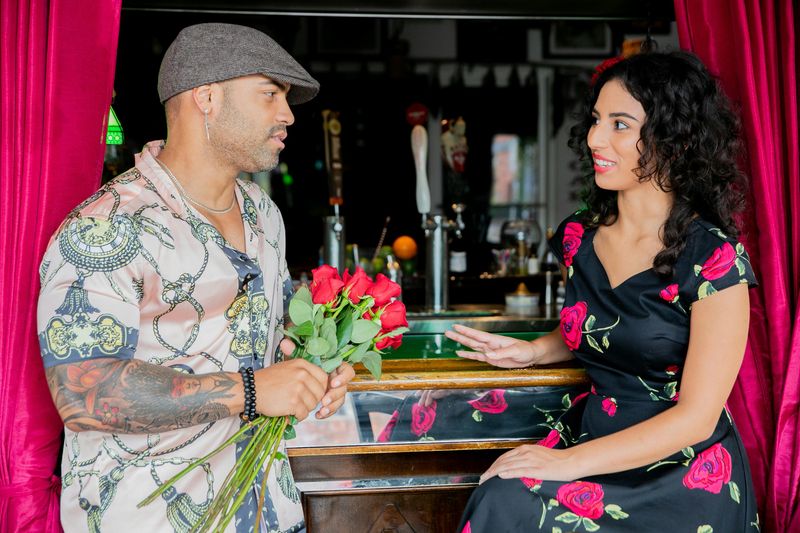When a relationship ends, it often brings painful but valuable lessons. Many divorced women look back and recognize warning signs they once dismissed or didn’t fully understand. These red flags, when ignored, can lead to years of unhappiness and emotional strain. Learning from their experiences can help others build healthier, more respectful partnerships from the start.
1. Dismissing Your Feelings
When someone constantly tells you that you’re being “too sensitive” or “overreacting,” they’re not just disagreeing with you. They’re invalidating your emotional experience entirely. One divorced woman shared how her ex would brush off her concerns every single time she tried to express discomfort or hurt.
Over time, this pattern made her question her own judgment and feelings. Healthy partners might not always understand your perspective, but they respect it and try to listen.
Dismissing emotions is actually a subtle way of controlling how you express yourself. It slowly chips away at your confidence and makes you doubt reality.
2. Never Taking Accountability
Nothing was ever his fault—not the argument, not the missed plans, not the hurtful words. There was always an excuse, always someone else to blame. Many women report that their ex-partners would twist situations to avoid taking any responsibility for their actions.
This kind of blame-shifting reveals emotional immaturity. Without accountability, there’s no room for growth or real problem-solving in a relationship. You end up feeling like you’re the only one working to fix things.
Relationships need both people to own their mistakes and learn from them. When one person refuses, the partnership becomes exhausting and one-sided.
3. Controlling Who You See
At first, it felt flattering that he wanted to spend so much time together. But gradually, visits with friends became “too much,” and family gatherings were “boring.” What seemed like devotion was actually the beginning of isolation.
Control doesn’t usually announce itself loudly. It creeps in with subtle comments that make you second-guess your social choices.
4. Love Bombing Early On
He swept her off her feet with grand gestures, constant texting, and declarations of love within the first few weeks. It felt like a fairy tale, but something in her gut whispered that it was moving too fast.
Love bombing is when someone showers you with intense affection and attention right away. It feels amazing at first, but it’s often a tactic that masks control or prevents you from seeing problems clearly.
When things move at lightning speed, you don’t have time to get to know someone truly. Real love builds gradually and respects your pace.
5. Poor Communication Skills
They never really talked about the hard stuff. Conflict was swept under the rug, and serious conversations were avoided at all costs. Over time, unspoken frustrations piled up like dishes in the sink.
Eventually, the pressure became unbearable, and small disagreements exploded into huge fights. Communication problems don’t magically fix themselves—they grow into resentment and emotional distance.
A partner who can’t or won’t engage in difficult conversations will leave you feeling unheard and alone. Healthy relationships require open, honest dialogue, even when it’s uncomfortable. Without that foundation, intimacy crumbles.
6. Disrespecting Boundaries
She asked for space, and he showed up anyway. She set a boundary about certain topics, and he turned it into a joke. What seemed like playful teasing was actually a serious lack of respect.
Boundaries aren’t suggestions—they’re essential guidelines for how you want to be treated. When someone consistently pushes past them, they’re showing you that their wants matter more than your comfort.
One woman shared how she wished she’d seen this behavior for what it truly was: a preview of bigger disrespect to come.
7. Financial Secrecy or Irresponsibility
He didn’t want to talk about money—ever. Bills were vague, spending was secretive, and financial planning felt like pulling teeth. At first, she thought it wasn’t a big deal, but it became one of their biggest sources of conflict.
Money matters in relationships because it represents trust, shared goals, and future planning. When one partner hides financial information or acts irresponsibly with money, it creates anxiety and distrust.
Financial transparency doesn’t mean sharing every penny, but it does mean being honest and responsible. Secrecy around money often points to deeper issues like control or dishonesty.
8. Subtle Put-Downs and Jokes
He made jokes at her expense in front of friends, and everyone laughed—including her. But inside, each comment felt like a tiny cut. Over time, those jokes chipped away at her self-esteem.
Humor should bring people together, not tear someone down. When your partner repeatedly makes you the punchline, it’s not affection—it’s disrespect dressed up as comedy.
Real love builds you up and celebrates who you are. If someone’s jokes consistently make you feel small or embarrassed, trust that feeling. You deserve a partner who speaks kindly about you, especially in public.
9. A Pattern of Crazy Exes
Every woman before her was “crazy,” “dramatic,” or “impossible to deal with.” At first, she felt special—like she was different. Eventually, she realized she was just next on the list.
When someone constantly blames all their past partners, they’re revealing their inability to take responsibility. The common denominator in all those “failed” relationships? Them.
If someone paints every ex as the problem, pay attention. You’ll likely become the next “crazy” story they tell.
10. Lack of Emotional Support
Whenever she faced something difficult—a loss, a job setback, a health scare—he withdrew. Instead of offering comfort, he made it about himself or simply disappeared emotionally. She felt completely alone, even while in a relationship.
A healthy partner shows up when life gets hard, not just during the good times.
If your partner consistently pulls away when you need them most, it’s a sign they can’t handle the depth of a real partnership. You deserve someone who stands beside you through storms, not someone who runs at the first sign of rain.
11. Constant Criticism Disguised as Helping
He always had a “helpful” suggestion—about her outfit, her job, her friends, even how she loaded the dishwasher. At first, she thought he was just trying to help her improve. Slowly, she realized it was eroding her confidence.
Constructive feedback in a relationship is healthy, but constant criticism is not. When someone always finds something wrong with what you do, it’s about control, not care.
Real partners celebrate your strengths and support your growth without tearing you down. If you feel like you can never do anything right, that’s a red flag worth recognizing immediately.
12. Unequal Effort in the Relationship
She was the one planning dates, initiating conversations, managing the household, and keeping the relationship alive. He just coasted along, doing the bare minimum. She told herself they had different love languages, but really, it was just an imbalance.
Healthy relationships require effort from both people. When only one person is consistently showing up, resentment builds quickly.
You shouldn’t have to beg someone to care about the relationship. Partnership means shared responsibility and mutual investment. If you’re doing all the emotional labor, you’re not in a team—you’re carrying all the weight.
13. Ignoring Your Gut Instinct
Deep down, she knew something was off. There was a persistent feeling in her gut that whispered warnings she didn’t want to hear. She was scared to admit the truth, so she ignored it—until she couldn’t anymore.
Your intuition is incredibly powerful. It picks up on subtle cues and patterns your conscious mind might miss or rationalize away.
Many divorced women say their biggest regret was not trusting that inner voice sooner. If something consistently feels wrong in your relationship, don’t dismiss it. Your instincts are trying to protect you, and they’re usually right.













